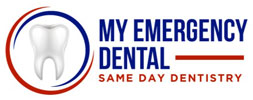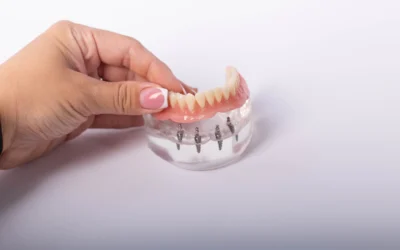The importance of dental deep cleaning in treating gum disease cannot be overstated. It serves as a crucial line of defense against the advancement of periodontal issues, which, if left unchecked, can lead to more serious oral health problems. But what exactly is dental deep cleaning, and how can you know if you need the procedure?
Dental deep cleaning is a thorough cleaning process that goes beyond the scope of regular dental cleanings to address more advanced gum issues. While regular cleanings focus on removing plaque and tartar from the visible surfaces of the oral cavity, deep cleaning takes this process a step further by cleaning beneath the gum line and smoothing the root surfaces of teeth.
This intensive procedure is specifically designed to treat and manage gum disease, particularly when it has progressed beyond its early stages. Unlike routine cleanings that are typically performed every six months as a preventive measure, dental deep cleaning is a therapeutic intervention aimed at halting the progression of periodontal disease and promoting gum health restoration.

Understanding Gum Disease: When Does Deep Cleaning Become Necessary?
Gum disease progresses through distinct stages, beginning with gingivitis and potentially advancing to periodontal disease if left untreated. Gingivitis, the earliest stage, occurs when plaque accumulates along the gum line, causing inflammation. At this point, the damage can be reversed with diligent oral hygiene and regular dental cleanings. However, if gingivitis isn’t addressed, it may evolve into periodontal disease, a more severe condition where infection spreads below the gum line and starts to deteriorate the bone supporting the teeth.
As gum disease develops, various signs and symptoms may appear. These can include:
- Red, swollen, or tender gums
- Bleeding when brushing or flossing
- Receding gums
- Persistent bad breath
- Loose teeth
- Changes in bite alignment
- Pus between teeth and gums
- Pain while chewing
These symptoms serve as warning signs that should prompt a visit to the dentist.
Do I Need Dental Deep Cleaning?
Deep cleaning becomes necessary when periodontal gum disease has advanced beyond its early stages. If you’re concerned that your oral health has deteriorated, and you suffer any of the symptoms listed above, the dentist will look for specific indicators during your dental visit to determine if this procedure is required.
These indicators include the presence of deep periodontal pockets (spaces between teeth and gums deeper than 3mm), visible tartar buildup below the gum line, evidence of bone loss on x-rays, receding gums, and persistent symptoms of gum disease despite good oral hygiene practices.
Dental deep cleaning is crucial when gum disease has progressed to a point where regular cleaning is no longer sufficient. By performing a deep cleaning, dentists can help prevent further progression of the disease and reduce the risk of potential tooth loss, making it an essential intervention in advanced cases of gum disease.
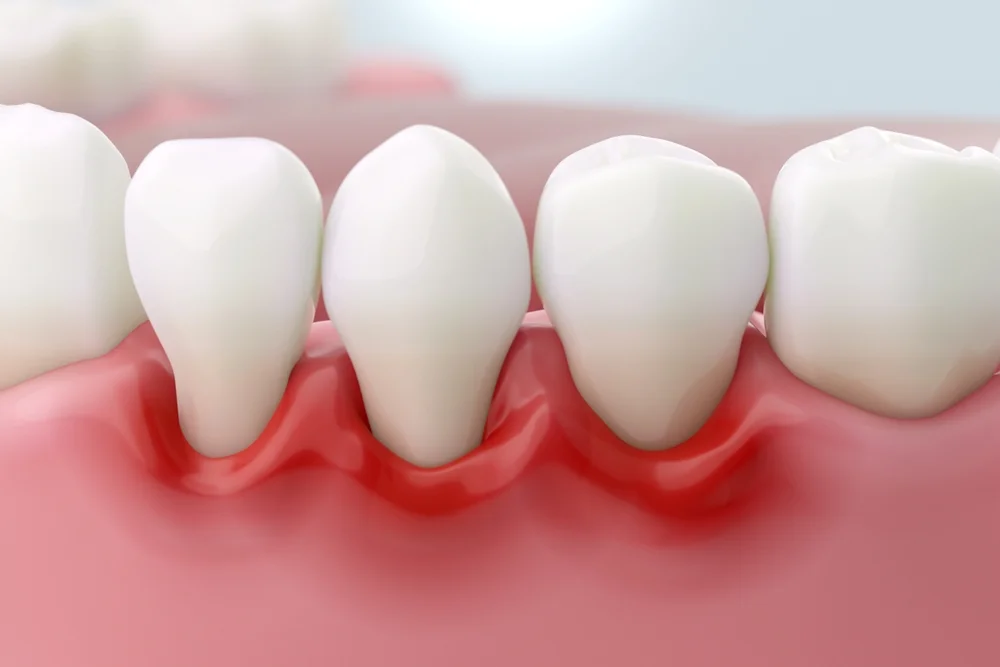
What To Expect From The Deep Cleaning Procedure
The deep cleaning procedure, known as scaling and root planing, aims to remove plaque and tartar buildup below the gum line, as well as smooth the tooth roots to eliminate bacterial toxins and create an environment that allows the gums to heal.
Part One: Scaling
The process begins with scaling, where the dentist or dental hygienist meticulously removes plaque and tartar from both above and below the gum line. They use specialized tools for this task, including a dental scaler, which can be either a manual hand-held instrument or an ultrasonic device with a vibrating metal tip. The ultrasonic scaler uses high-frequency vibrations to break up stubborn tartar deposits, while a water spray helps flush away debris and keep the area cool.
Part Two: Root Planing
Once scaling is complete, the practitioner moves on to root planing. This step involves carefully smoothing the roots of the teeth to remove any infected tooth structure and bacterial toxins that have accumulated on the root surfaces. Root planing helps eliminate rough spots or infected tooth structure, creating a clean, smooth surface that promotes gum reattachment and discourages further buildup of harmful bacteria.
Is Anesthesia Required?
To ensure patient comfort during scaling and root planing, the dentist typically administers local anesthesia. This is to numb the gums and surrounding tissues, allowing for a more thorough and pain-free cleaning — especially when working deep below the gum line.
The use of anesthesia also helps patients remain relaxed throughout the treatment, which can sometimes take multiple appointments to complete, depending on the extent of the gum disease.
The Methodology
Throughout the deep cleaning process, the dentist may use additional tools such as curettes to access difficult-to-reach areas and a dental mirror for better visibility. They might also employ a water spray or irrigation system to continuously flush out loosened debris and bacteria. This comprehensive approach not only removes harmful buildup but also creates an environment conducive to gum healing and the restoration of periodontal health.
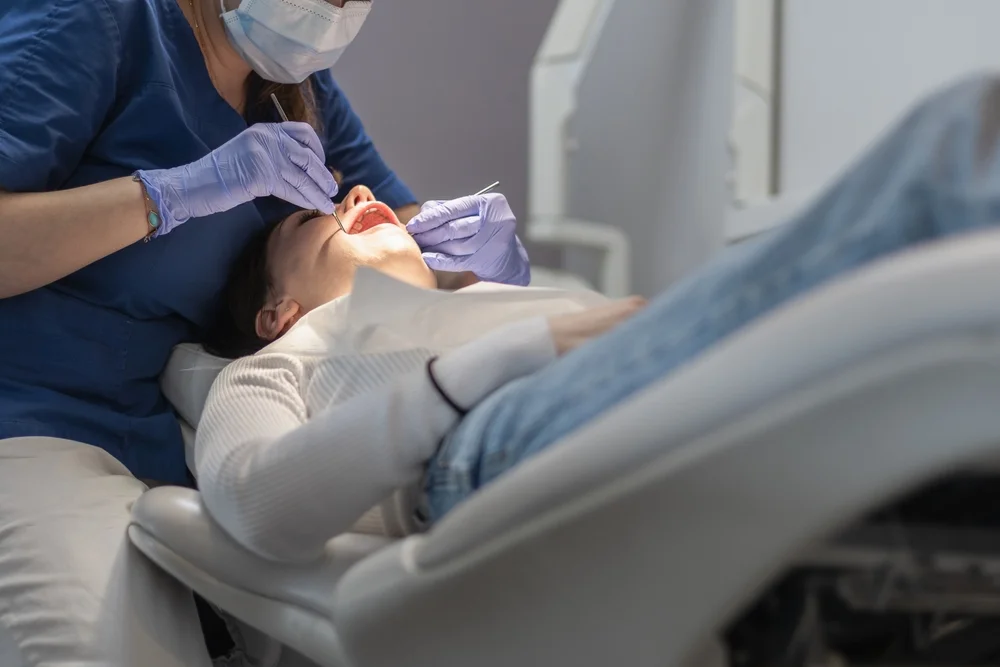
The Benefits and Importance of Dental Deep Cleaning
Dental deep cleaning plays a crucial role in maintaining oral health, offering a variety of benefits that extend beyond just cleaner teeth. While the primary advantage is that dental deep cleaning is highly effective in treating the progression of gum disease, another significant benefit is its ability to prevent tooth loss.
By thoroughly removing plaque and tartar buildup both above and below the gum line, deep cleaning addresses the root cause of periodontal issues. This intervention is particularly important because it can prevent gum disease from advancing to more severe stages, which could lead to irreversible damage to the supporting structures of the teeth.
Addressing these issues early can significantly reduce the risk of tooth loss in the future. This preventive aspect of deep cleaning is crucial for preserving natural teeth and avoiding the need for more invasive and costly dental procedures down the line.
The Appointment and Aftercare
The dental deep cleaning process typically begins with an initial check-up and comprehensive examination. During this visit, we assess the extent of gum disease, measure periodontal pocket depths, and we may also take X-rays to evaluate bone loss. Based on these findings, we’re able to develop a tailored treatment plan.
The deep cleaning itself is usually performed over two appointments, each focusing on one half of the mouth. This approach allows for thorough cleaning while ensuring patient comfort. At each appointment, a scaling and root planing is performed, methodically working through each quadrant of the mouth. The duration of these appointments can vary, typically lasting between 1-2 hours each, depending on the severity of gum disease and the amount of tartar buildup.
Proper aftercare is crucial for ensuring a healthy recovery and maximizing the benefits of the treatment. Patients may experience some sensitivity and discomfort for a few days following the procedure. To manage this, over-the-counter pain relievers are typically prescribed along with a medicated mouthwash to aid healing and prevent infection.
Aftercare Precautions
Eating soft foods for the first few days after a deep cleaning procedure is essential to avoid irritating the treated areas. Patients are usually advised to avoid extremely hot or cold foods and beverages, as well as spicy or acidic items that could cause discomfort. Proper oral hygiene remains crucial, but patients should brush gently to avoid disrupting the healing process.
Scheduling a Follow-Up Appointment
It is generally recommended to schedule a follow-up appointment within a few weeks of a procedure taking place. This is to assess the healing and ensure the treatment’s effectiveness. This visit allows for additional cleaning if necessary, alongside further guidance on maintaining good oral health.
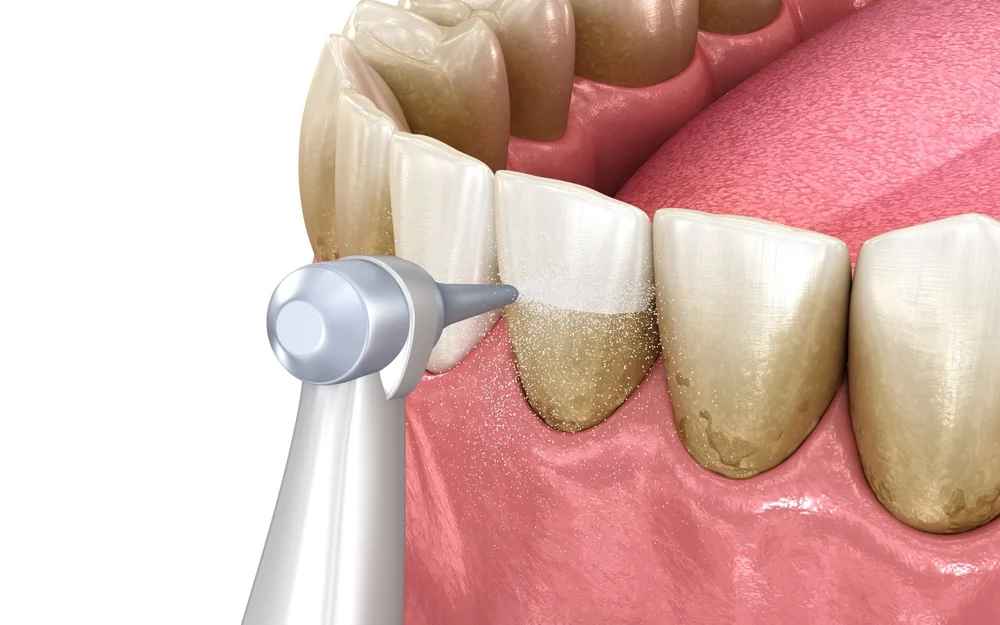
Preventing Gum Disease And Preserving Oral Health
Regular dental cleanings (which are less time-intensive than deep cleaning), diligent daily oral care, and consistent follow-up appointments form the cornerstone of preventing gum disease and maintaining optimal oral health.
Professional cleanings are recommended every six months to allow dentists to remove plaque and tartar buildup, which can easily be missed during regular brushing and flossing. These routine visits also provide opportunities for early detection of potential issues, enabling prompt intervention before problems escalate.
How Much Does Dental Deep Cleaning Cost?
When considering the costs associated with dental care, it’s important to recognize that preventive measures like regular cleanings and good daily oral care are generally more cost-effective than treating advanced dental problems.
Most dental insurance plans cover preventive care, including routine cleanings, at 100% or with minimal out-of-pocket costs. Deep cleanings, when necessary, are often partially covered by insurance, though coverage levels can vary depending on the provider.
The long-term cost benefits of maintaining good oral health are significant. By preventing gum disease and other dental issues through regular care, patients can avoid more expensive and invasive treatments down the line. Advanced periodontal treatments, tooth extractions, and restorative procedures like implants or bridges can be considerably more costly than routine preventive care.

A Final Word from My Emergency Dental
Dental deep cleaning plays a vital role in maintaining and restoring gum health, serving as a crucial intervention in the fight against periodontal disease.
The procedure goes beyond regular cleanings to address advanced gum issues, effectively treating existing problems and preventing further progression of gum disease. By thoroughly removing plaque and tartar buildup, smoothing root surfaces, and creating an environment conducive to gum healing, deep cleaning helps preserve natural teeth and contributes to overall oral health.
If you’re concerned about your gum health or have been experiencing symptoms such as bleeding gums, persistent bad breath, or loose teeth, it’s crucial to seek professional advice. My Emergency Dental is equipped with experienced professionals who can assess your oral health and provide personalized treatment plans to address your specific needs.
Don’t wait for gum disease to progress – take action now to protect your smile and overall health. Contact My Emergency Dental today to schedule a comprehensive dental examination and discuss whether a dental deep cleaning could benefit you.
